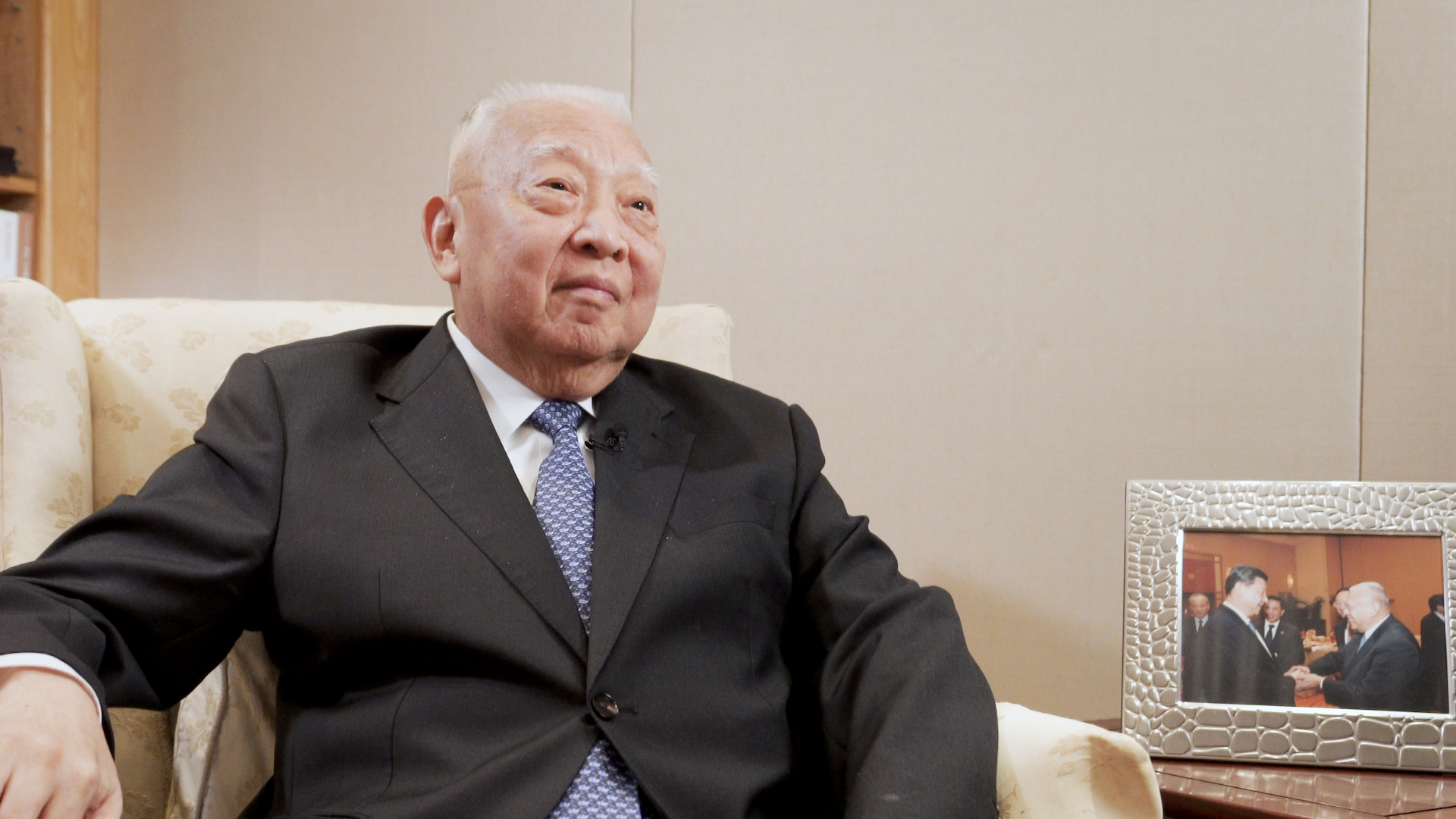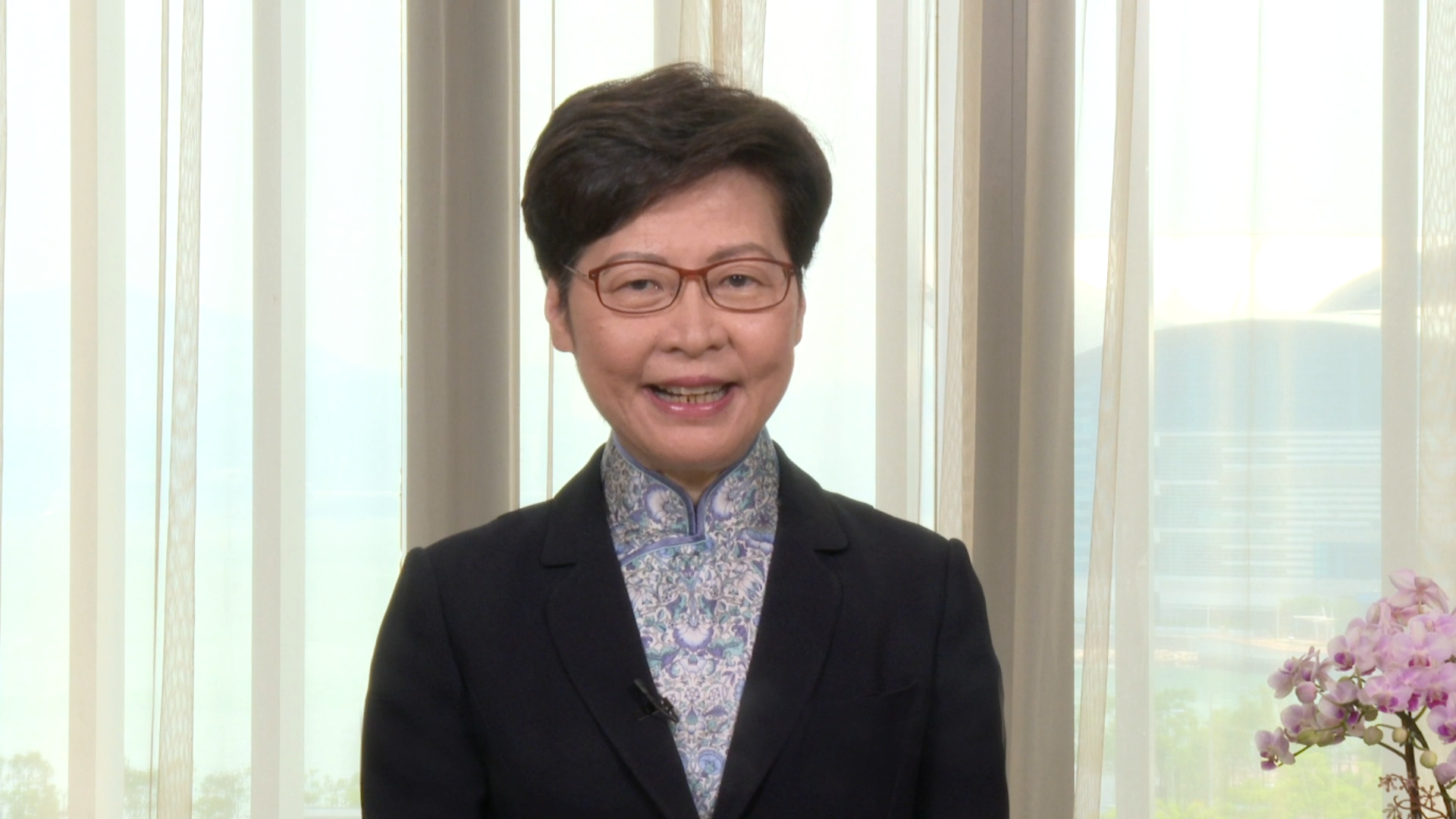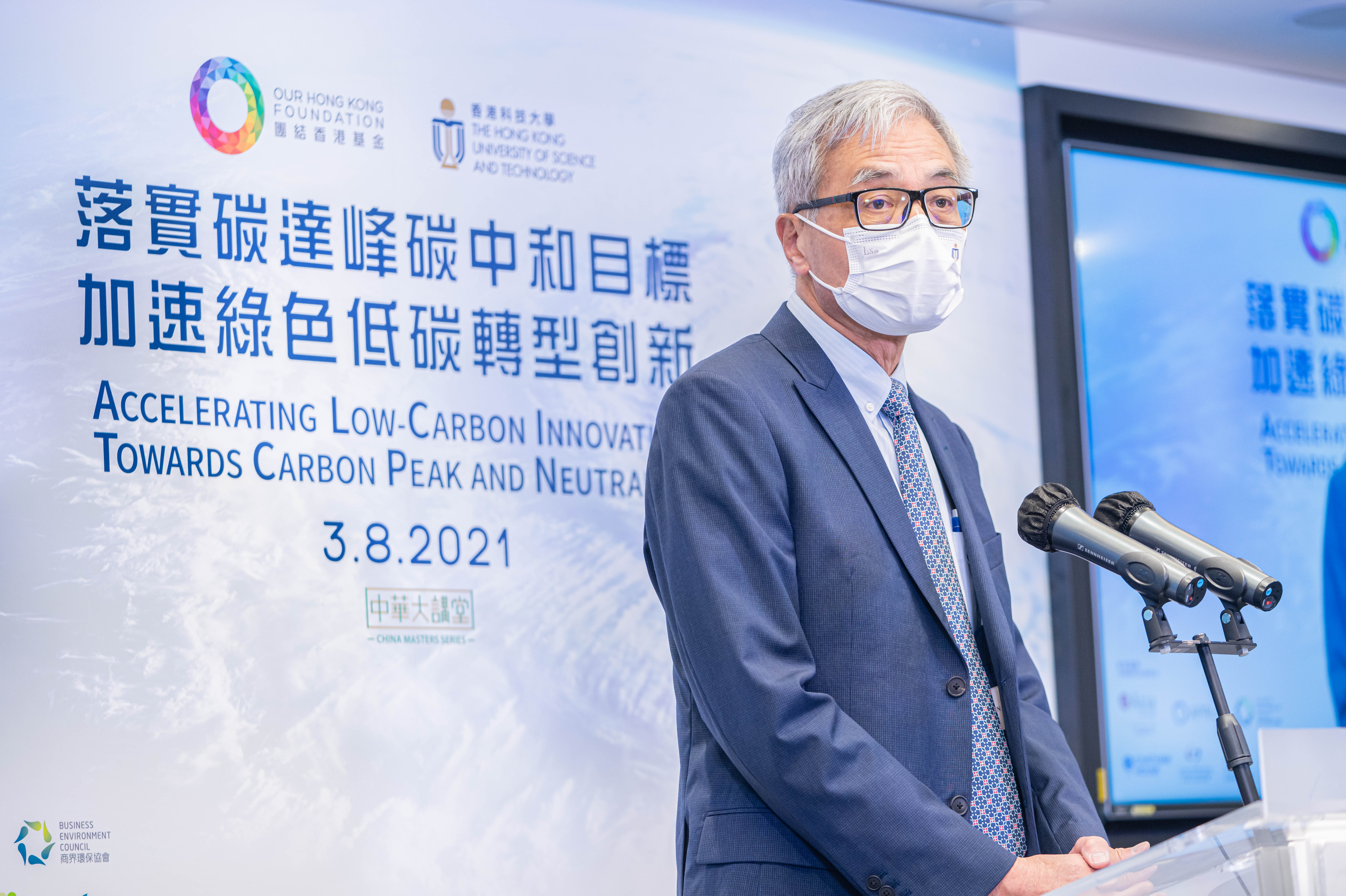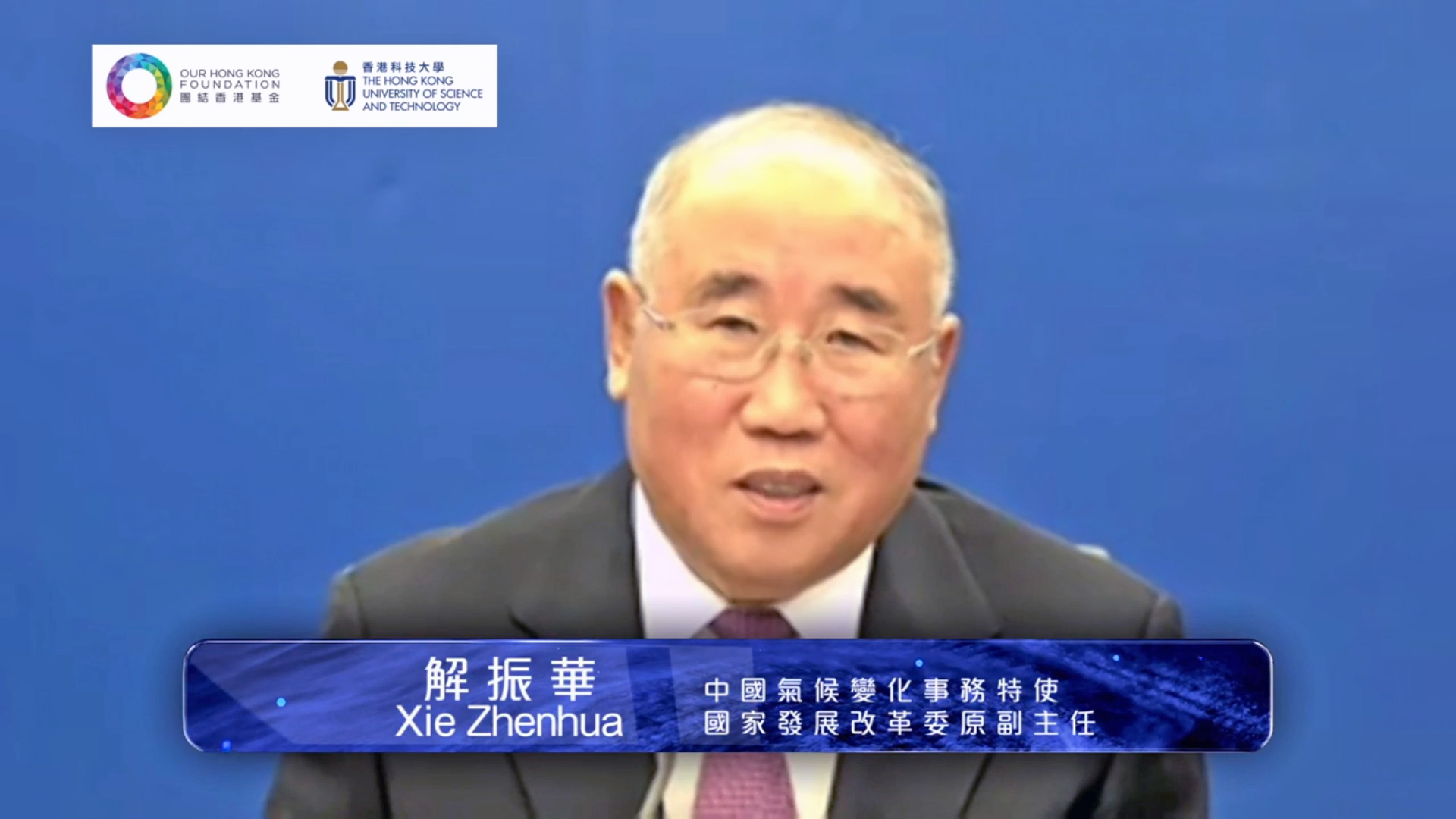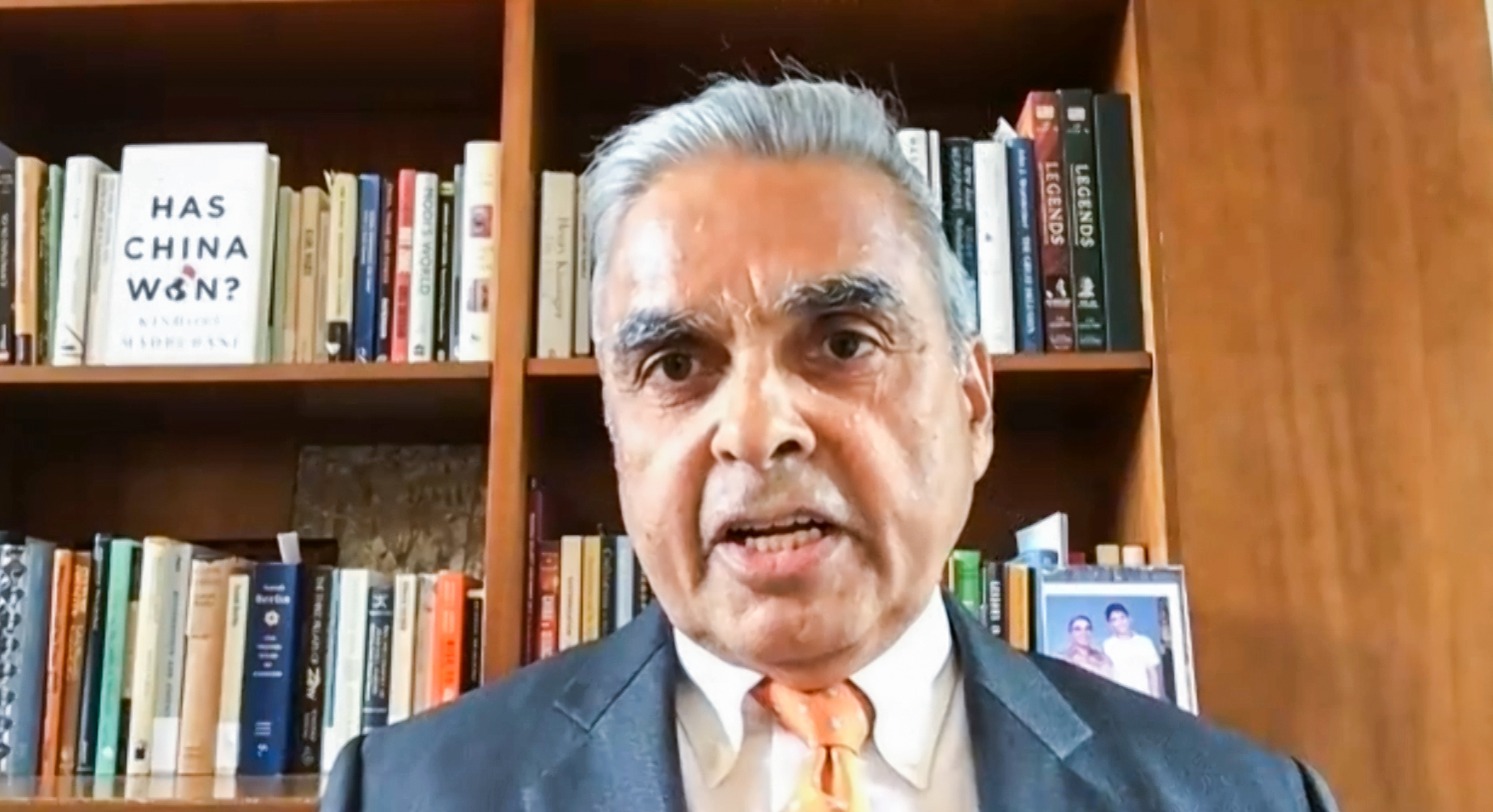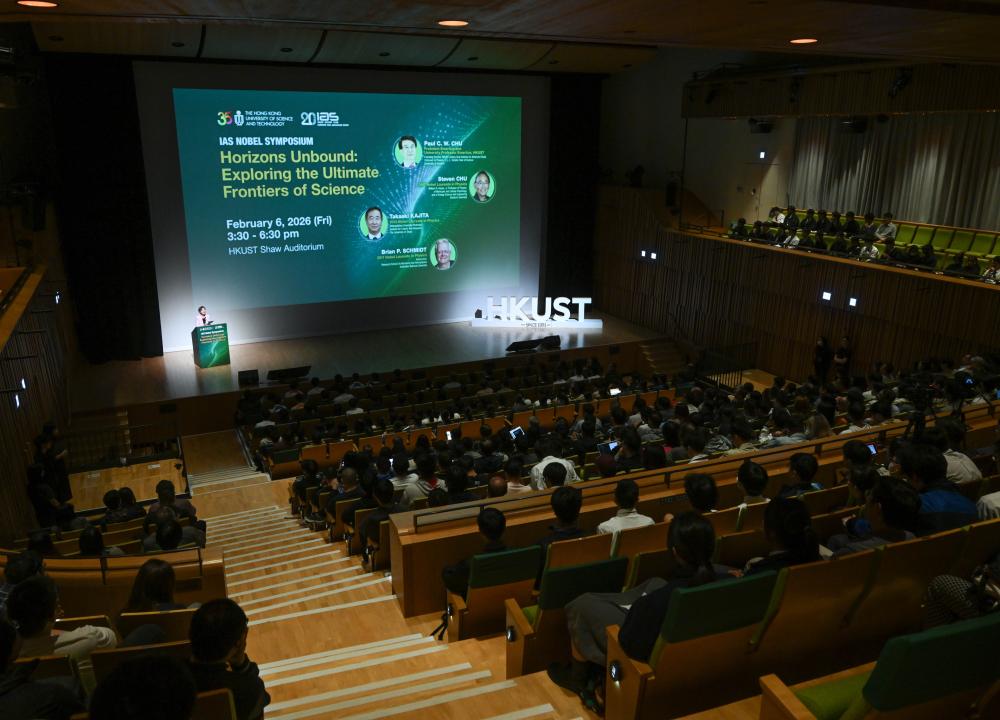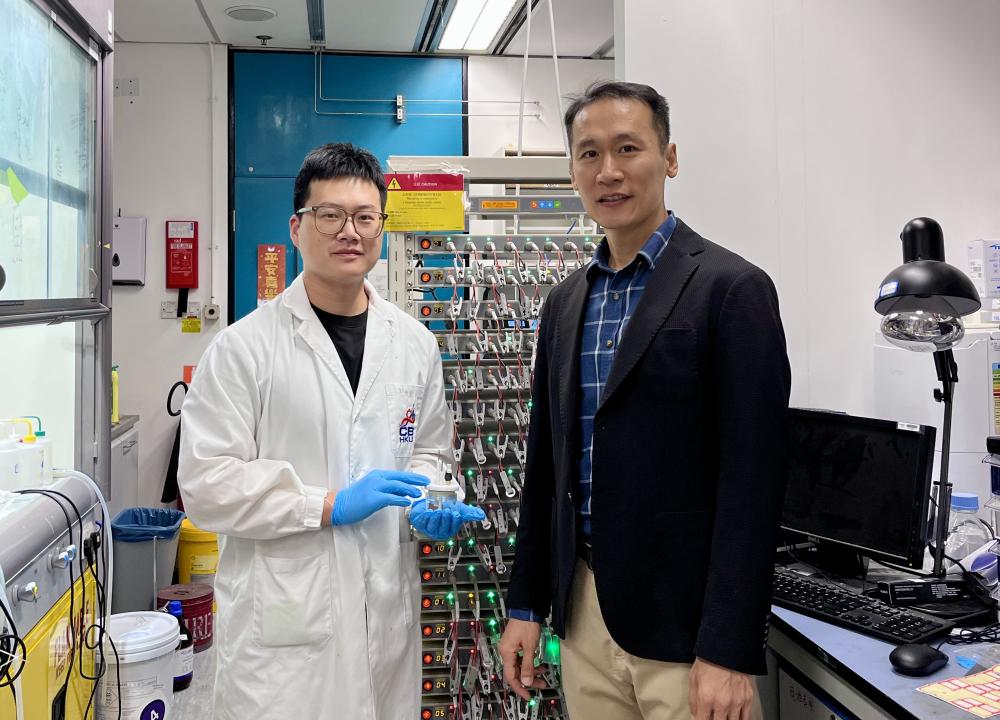HKUST and OHKF Jointly Present: China’s Climate Special Envoy Speaks on Accelerating Low-Carbon Innovation Towards Carbon Peak and Neutrality
China is accelerating the pace of low-carbon innovation to combat the challenges and threats posed by climate change. President XI Jinping pledged in September 2020 to achieve carbon peak by 2030 and carbon neutrality by 2060. National plans and initiatives were laid out to achieve these targets in December 2020. China’s Special Envoy on Climate Change Mr. XIE Zhenhua stressed in his keynote that these goals demonstrate China’s solemn commitment to tackling climate change to the world which require Herculean efforts.
In this high-powered “China Masters Series” live webinar, Mr. Xie shared China’s roadmap to achieve carbon neutrality and exchanged views with international climate experts on building a cooperative, win-win global climate management system. The forum is co-organised by The Hong Kong University of Science and Technology (HKUST) and Our Hong Kong Foundation (OHKF) today.
Major Strategic Decisions Require Herculean Efforts
Recently, the frequent extreme weather in parts of the world like heat waves, floods, and droughts underline the imminent threats to the survival of humanity, Mr. Xie noted. Nevertheless, the global transition to low-carbon development is well under its way, but there is still much to be done in global climate management in the post-pandemic era.
China’s goal to achieve carbon peak and neutrality is a major strategic decision of the Central Government. It is a solemn commitment to the Paris Agreement and to the world, which also reflects China’s strengthened actions to address climate change while fulfilling international responsibilities, said Mr. Xie.
He emphasized that China aims to take the shortest timespan in history to achieve the world’s highest carbon emission intensity reduction, despite being the world's largest developing country. The ambitious goal would require tremendous effort to address the daunting challenges ahead. “Compared with other developed countries, such as the US, Europe, and Japan, China’s per capita GDP at peak carbon emissions would be at a level lower than those countries when they achieve peak carbon. It is estimated the European Union would need some 60 years in its transition from carbon peak to neutrality or net zero emissions, and the US would need 45 years, while China will strive to achieve this goal in about 30 years.”
“1+N” Policy System Addresses Ten Major Areas to Accelerate Domestic Green and Low-Carbon Innovation
Mr. Xie noted that China had established a Central Leading Group to drive carbon peak and carbon neutrality. The Group would formulate and announce in due course the “1+N” policy system. “1” would be the template for core guidance to achieve carbon peak and neutrality, and “N” would include the peak carbon action plan by 2030, as well as policy measures and actions in key areas and industries.
He underlined that the “1+N” policy system would drive transformation and innovation in the following ten areas: (1) To optimize energy structure, promote energy revolution, and accelerate the development of a clean, low-carbon, safe and efficient energy framework and a new power system based on new energy sources; (2) To promote optimization and upgrading of production and industries, curbing reckless development of high energy-consuming and high-emission industries, and preventing carbon emissions from reaching the peak; (3) To promote construction of energy-saving and low-carbon buildings and infrastructures; (4) To build a green and low-carbon transportation system; (5) To develop a circular economy to increase the efficiency of resource use; (6) To promote green and low-carbon technological innovation; (7) To develop green finance and expand capital support and investment; (8) To introduce relevant economic policies and reforms; (9) To establish a sound carbon trading market; and (10) To implement nature based solutions.
To ensure the achievement of carbon peak and carbon neutrality, the Central Government requires all departments, local governments, and major industry players to lay down clear timelines and roadmaps and take up their own responsibilities, Mr. Xie added. A sound audit and assessment system should also be in place to hold local governments and departments accountable if they fail to achieve the targets.
International Cooperation to Advance Multilateral Climate Governance
Mr. Xie said as the threats of global climate change escalate, it is essential for the international community to work together and promote multilateral cooperation. To date, more than 190 countries and regions have signed the Paris Agreement, and more than 130 countries and regions have pledged to achieve carbon neutrality. In addition, China and the US released the China-US Joint Statement Addressing the Climate Crisis this April, mapping out eight areas of cooperation—a positive move between major powers in exploring partnerships to address the global crisis.
2021 is crucial to tackling climate change, he highlighted, as leaders of all countries will gather at the 26th UN Climate Change Conference of the Parties in Glasgow in November to hammer out the implementation details of the Paris Agreement and continue strengthening climate actions and international cooperation.
Mr. Xie reinforced that regardless of the international situation and the policies of other countries, China would hold firm to its commitment to multilateralism and work with all parties to exercise the Paris Agreement. He also pointed out that the China-US Joint Statement Addressing the Climate Crisis clearly supports the Paris Agreement’s goals and principles in curbing global temperature rise, and focuses on implementing the actions and cooperation established in the past decade. China recommended establishing a global carbon market mechanism under a multilateral framework that ensures environmental integrity, avoids double counting, prevents carbon leakage, and maintains fair trade.
Finally, Mr. Xie stressed that developed countries should fulfil their funding commitments and help developing countries improve their ability to respond to climate change which was of vital importance. The success of such efforts relies on mutual trust of all parties and an effective multilateral mechanism. All parties should also step up technological innovation, cooperation and technology transfer. While steering climate change and green-and-low-carbon cooperation and trade, he concluded that countries should set aside political agendas and work together.
About The Hong Kong University of Science and Technology
The Hong Kong University of Science and Technology (HKUST) (https://hkust.edu.hk/) is a world-class research intensive university that focuses on science, technology and business as well as humanities and social science. HKUST offers an international campus, and a holistic and interdisciplinary pedagogy to nurture well-rounded graduates with global vision, a strong entrepreneurial spirit and innovative thinking. Over 80% of our research work were rated “Internationally excellent” or “world leading” in the Research Assessment Exercise 2020 of Hong Kong’s University Grants Committee. We were the world’s best young university in Times Higher Education’s Young University Rankings 2020, and our graduates were ranked 26th worldwide and among the best from universities from Asia in Global University Employability Survey 2020.
About Our Hong Kong Foundation
Our Hong Kong Foundation (OHKF) is a leading non-government, non-profit organisation founded in November 2014 under the chairmanship of Mr C H Tung, Vice Chairman of the National Committee of the Chinese People’s Political Consultative Conference. OHKF’s core mission is to promote and contribute to Hong Kong's long-term and sustained prosperity and stability under the “One Country, Two Systems” principle. It harnesses Hong Kong’s collective wisdom, dynamism, and resilience to take full advantage of the unique opportunities that our country and the two systems together can offer. To fulfil our broad mission, the OHKF has set up an array of specialist institutes and platforms. They are the Public Policy Institute, China Institute for Knowledge, SciTech Innovation Platform, Business for Social Good Platform, Academy of Chinese Studies, and Hong Kong Chronicles Institute.
About “China Masters Series”
Organised by OHKF since 2015, the “China Masters Series” is a series of high-level forums featuring renowned mainland officials and experts who explore mainland China’s latest policies, current affairs, contemporary military strategies, and also its historical culture and heritage. A total of 26 forward-thinking and insightful forums have been held, providing Hong Kong people with a better understanding of China.









